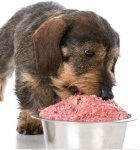{“post_id”:5404,”post_type”:”post”,”shortcode”:”peepso_postnotify”,”permalink”:”https:\/\/ask-bioexpert.com\/blog-post\/alternatives-to-mercury-germicidal-lamps\/”}
ruth
The FDA plans to resume inspections of high-risk food facilities, which include leafy greens and other fresh-cut processing plants on January 15. The FDA Commissioner Scott Gottlieb announced, via tweet, the resumption of inspection during the government shutdown. A sampling of products at U.S. ports of entry began again on Jan. 14, he said. “This was a major functional accomplishment amidst one of the biggest operational challenges in FDA’s modern history and it was fully enabled by the leadership of FDA’s field force and the colleagues who serve the country on the front lines of that mission,” he tweeted. “The ongoing federal government shutdown has no effect on the on-farm food safety audits conducted through the California and Arizona LGMA programs,” according to a blog post by California LGMA Marketing Director April Ward on the group’s website. “The LGMA programs utilize state agricultural auditors and the audits are funded by industry. In the Winter, Arizona, and California produce almost all of the leafy greens grown in the U.S., so farm food safety audits continue and are not affected by the shutdown.” According to the Packer, Rep. Rosa DeLauro, D-Conn., has scheduled a Congressional Food Safety Caucus at 2 p.m. Eastern on Jan. 16. A panel of food safety activists will discuss how the shutdown is affecting the ability of FDA and U.S. Department of Agriculture to conduct food safety inspections and other activities. @ https://www.thepacker.com/article/fda-resumes-fresh-produce-inspections-during-shutdown?mkt_tok=eyJpIjoiTlRaak1EaGlOVFZpTVRJeCIsInQiOiJ0cmMyREFTallEMnVSdFNjNlwvZ05POFZWSktXdGoxVllNdlwvd2Y1ekVPdDloY2xvSUNcL2xyWGtteXhrXC83NnJOcmJ6ckhhU2lXWGI5VHdCOXEwRWdxdkczZUs1RXJJTkl1UVE5THdqaXRaaGNhTGJnekhjZ09zNTNYVGxDNEFpbUMifQ%3D%3D
The Food and Drug Administration on Jan. 15 plans to start inspections of high-risk food facilities, which include leafy green processing plants, using mostly unpaid furloughed employees.
ruth
The Canadian Food Inspection Agency (CFIA), announced the implementation of the Safe Food for Canadian Regulations (SFCR) effective as of January 15, 2019, that will focus on prevention and allowing for faster removal of unsafe food from the marketplace. The new regulations cover a wide range of food safety-related efforts including licensing, labeling standards, rules enforcement, and new recall protocols. These regulations also feature traceability requirements designed to help Canadian food companies that import or send food between Canadian territories track the origins of the products they manage. Other issues covered by SFCR include packaging, organic products, excluded products, and inspection standards. @ http://inspection.gc.ca/food/eng/1299092387033/1299093490225
The CFIA develops and delivers programs and services designed to protect Canadians from preventable food safety hazards, to ensure that food safety emergencies are effectively managed, and that the public is aware of–and contributes to–food safety.
ruth
The U.S. Food and Drug Administration is warning pet owners not to feed A+ Answers Straight Beef Formula for Dogs, lot 2018 20/08 20, after the Nebraska Department of Agriculture (NDA) tested and found Salmonella in the food. Lystn, LLC, also doing business as Answers Pet Food, is the brand owner of A+ Answers Straight Beef Formula for Dogs and has recalled the affected lot in Nebraska, but has not implemented a nationwide recall. The warning is issued because it represents a serious threat to human and animal health. The FDA is still working with Lystn to gather comprehensive distribution information and is issuing this warning to alert consumers about this public health risk. Pet foods contaminated with pathogens such as Salmonella are of particular public health importance because they can affect both human and animal health. Pets can get sick from Salmonella, and may also be carriers of the bacteria and pass it onto their humans. Federal law requires all pet food to be free of pathogens, including Salmonella. Pet food manufacturers must effectively manage sourcing of ingredients, processing and packing to control pathogens. Without effective control, such as cooking, raw pet food is more likely than other types of pet food to contain pathogens such as Salmonella. @ https://www.fda.gov/AnimalVeterinary/NewsEvents/CVMUpdates/ucm629447.htm?utm_campaign=1-14-2019-petfood&utm_medium=email&utm_source=Eloqua&elqTrackId=36D622A1932BECE560614F0F106491CC&elq=f241928b60264bd48af38b27a7ae770e&elqaid=6476&elqat=1&elqCampaignId=5284
https://www.fda.gov/AnimalVeterinary/NewsEvents/CVMUpdates/ucm629447.htm?utm_campaign=1-14-2019-petfood&utm_medium=email&utm_source=Eloqua&elqTrackId=36D622A1932BECE560614F0F106491CC&elq=f241928b60264bd48af38b27a7ae770e&elqaid=6476&elqat=1&elqCampaignId=5284


